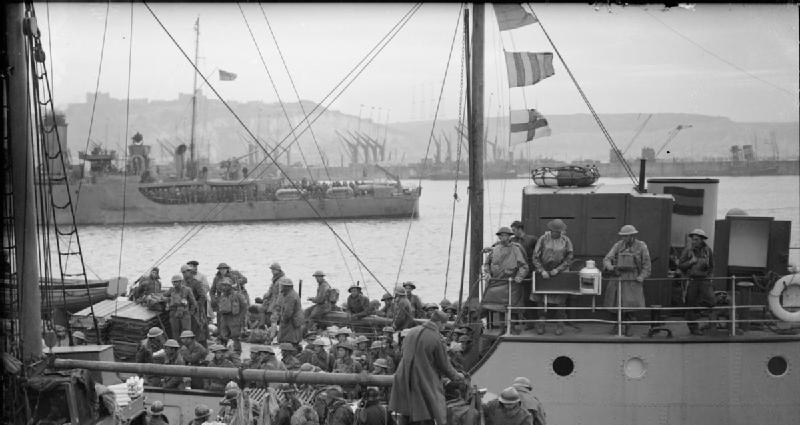Entertainment
Dunkirk India Debate: Time to Look Inward?

Christopher Nolan’s grand masterpiece has brought the world’s attention back to the annals of World War II history — to the port city of Dunkerque (Dunkirk) in France in summer of 1940. The film chronicles the plight of 4,00,000 soldiers pushed to these beaches by the Germans. Dunkirk became a part of history for its ingenious evacuation of 3,00,000 Allied soldiers.
While Nolan’s movie is an immersive account of what it was like to be stuck on the beaches and live in absolute terror of being dive-bombed, it also sparked heated discussions in media and online forums about one crucial detail that was ‘missed out’ in the film. There is no mention of the Indian Army, which participated in World War II as part of the British Empire. The Indian soldiers were among those rescued from Dunkirk in an operation that used 933 ships to pick them up from the port city.
The debate in India
The ‘oversight’, many pointed out, was a testimony to how the West chooses to ignore developing countries when it comes to credit-sharing. Those who hold a contrarian view, on the other hand, say that the objections raised against the film reveal the self-obsessed mindset of Indians.
“Christopher Nolan’s “Dunkirk,” in cinemas now, adds to the falsehood that plucky Britons stood alone against Nazi Germany once France fell, when, in fact, hundreds of millions of imperial subjects stood, perforce, with them,” Mihir Sharma writes in Bloomberg.
The sentiment is shared by John Broich, an associate professor of history at Case Western Reserve University, who points out in an article in Slate that there were four companies of Royal Indian Army Corps in the area. “Observers said they were particularly cool under fire and well organized during the retreat. They weren’t large in number, maybe a few hundred among hundreds of thousands, but their appearance in the film would have provided a good reminder of how utterly central the role of the Indian Army was in the war,” he says, adding that their service meant the difference between victory and defeat. “In fact, while Britain and other allies were licking their wounds after Dunkirk, the Indian Army picked up the slack in North Africa and the Middle East,” he says.
Columnist Sidin Vadukut differs. “Indian history is messy. And much like the history of any other country, it does not always make us look good,” he writes in Mint. “But that is in the nature of such things. Expecting only glory and repentance from history, leave alone historical films, is nonsense. Expecting this from Christopher Nolan is doubly so.”
Indian participation at Dunkirk
The four companies of Royal Indian Army Corps – called Force K6 – were led by Lt Col RRW Hills. It comprised 1,800 men and 2,000 animals. While the British Army was largely mechanised at the time of World War II, a need was felt for animal transport in the Battle of France. This is how the four companies came to France with animals and their handlers. The men in the contingent were Punjabi Muslims and Pathans from the modern day Pakistan.
During the evacuation, three of the four companies were successfully rescued — without the animals. One company was captured as Prisoners of War by the Germans, and these personnels are said to have died in camps.
‘Whitewash the Contribution’
The recognition of their valour comes in form of a citation of Indian Distinguished Service Medal awarded to Jemadar Maula Dad Khan, a VCO (Viceroy’s Commissioned Officer), the Times of India reported. The citation reads: “On 24 May 1940 when approaching Dunkerque, Jemadar Maula Dad Khan showed magnificent courage, coolness and decision. When his troop was shelled from the ground and bombed from the air by the enemy he promptly reorganised his men and animals, got them off the road and under cover under extremely difficult conditions. It was due to this initiative and the confidence he inspired that it was possible to extricate his troop without loss in men or animals.”
The Royal Indian Army returned to the country from the UK in 1944, and soldiers were then sent to Burma to push back the Imperial Japanese. Indians was there at Monte Cassino, Bir Hachiem, Tobruk, El Alamein, Singapore and Hong Kong.
Projects like Nolan’s, critics say, chooses to whitewash the contribution of Indian Army in World War II, and reveal the tinted manner in which history is seen by the Imperialists. As Oxford historian Yasmin Khan says in her book The Raj at War, “Britain didn’t fight the Second World War, the British Empire did.”

You must be logged in to post a comment Login